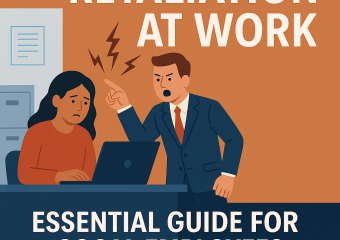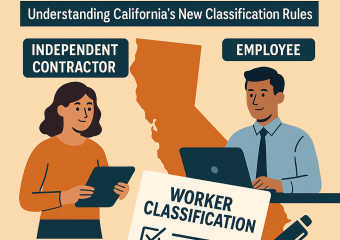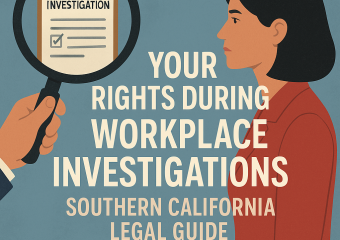Santa Barbara Discrimination Claims: Legal Steps for Fair Workplace Treatment
Santa Barbara Discrimination Claims: Navigating the Legal Route for Workplace Justice
In Santa Barbara, discrimination claims are taken seriously, as they are essential avenues for pursuing fair treatment in the workplace. These claims help ensure that every employee, regardless of their background, can work in an environment free from unfair treatment based on age, race, gender, religion, or other legally protected attributes. If you believe that you or someone you know has been a victim of workplace discrimination in Santa Barbara, understanding the proper legal steps to address it is crucial.
Understanding Workplace Discrimination
Before delving into the specific processes involved in filing a discrimination claim in Santa Barbara, it’s important to understand what qualifies as workplace discrimination under the law. Discrimination can manifest in several ways, including hiring and firing decisions, compensation, job assignments, promotions, layoffs, training, fringe benefits, and other terms or conditions of employment that are influenced by bias against protected classifications.
Initial Steps in Filing a Discrimination Claim
The first step in tackling a discrimination issue is to document the offending behavior thoroughly. Keep records of any incidents, including emails, witness statements, and any communicable proof that can support your claim. This documentation can play a crucial role in the strength of your case when you proceed with a legal claim.
Next, it is advisable to report the discrimination internally if your workplace has a Human Resources (HR) department. Filing a formal complaint through your company’s HR can not only help solve the issue internally but also serves as proof that you sought to address the issue through the proper channels.
Filing a Discrimination Claim with the DFEH or EEOC
If internal resolution does not yield results, or if you choose to bypass those routes, the next step involves reaching out to legal institutions. In California, the Department of Fair Employment and Housing (DFEH) is responsible for enforcing state discrimination laws, while the Equal Employment Opportunity Commission (EEOC) handles federal laws.
To move forward, you will need to file a complaint with either the DFEH or the EEOC. The agencies will ask for all evidence you have collected and may conduct an investigation to determine if there has been a violation of discrimination laws. It’s important to note that there are strict time limits for filing these claims—typically within 300 days of the discriminatory act.
Legal Representation and Mediation
Navigating the process of a discrimination claim often requires legal expertise. Hiring an attorney who specializes in employment law can provide you guidance on how to present your case effectively and protect your rights throughout the process. Your lawyer can also represent you in mediation if your case goes this route. Mediation is a voluntary and confidential process where a mediator helps the employer and employee resolve their issues.
The Role of Legal Advocacy Groups
In addition to hiring a personal attorney, there are several advocacy groups in Santa Barbara that provide support to individuals facing workplace discrimination. These organizations can offer legal advice, emotional support, and other resources to help manage the stress and complexity of discrimination claims.
Empowerment Through Legal Awareness
Understanding your rights is the cornerstone of combating workplace discrimination. Empowerment through legal knowledge can not only help you seek justice for yourself but can also contribute to a more equitable work culture for all. Santa Barbara’s commitment to enforcing anti-discrimination laws is geared towards creating safer, more inclusive professional environments.
For those dealing with discrimination, taking the initial step to document and report can be daunting. Yet, it’s essential for legal processes to unfold and ensure that such grievances are addressed. Santa Barbara offers several resources and legal avenues to support employees in these situations, emphasizing a community-wide commitment to fairness and respect in employment.
By effectively using the available legal frameworks and resources, individuals can navigate through the challenging waters of workplace discrimination, ensuring that their careers and personal well-being are safeguarded against unlawful biases.




